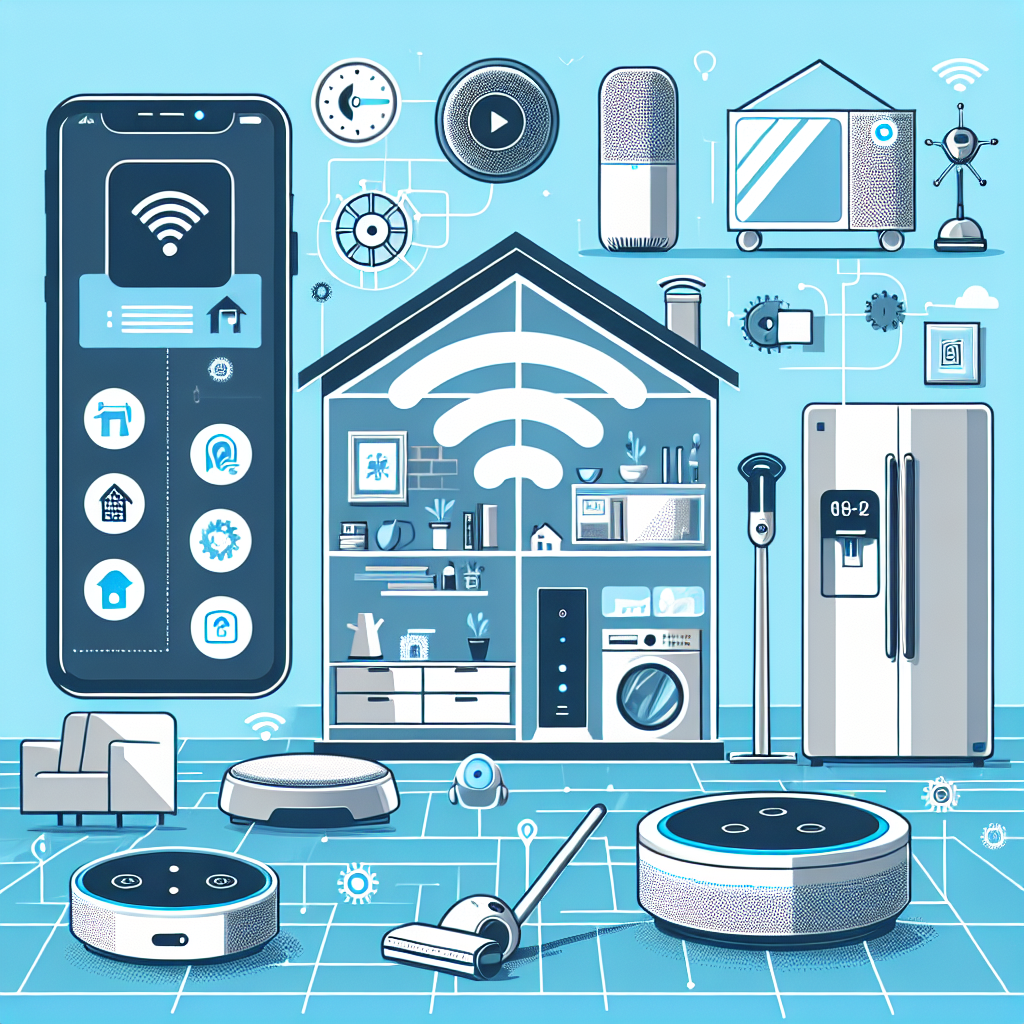The use of artificial intelligence (AI) tools in smart home technology is revolutionizing the way we interact with our living spaces. From automating routine tasks to enhancing security measures, AI-powered devices are offering homeowners a more convenient and efficient way to manage their homes. In this article, we will explore the various ways in which AI tools are being integrated into smart home technology and how they are transforming the way we live.
One of the key benefits of using AI tools in smart home technology is the ability to automate routine tasks. For example, smart thermostats can learn the habits and preferences of homeowners and adjust the temperature accordingly, saving energy and creating a more comfortable living environment. Similarly, AI-powered lighting systems can automatically adjust the brightness and color temperature of lights based on the time of day or the occupants’ activities.
AI tools are also being used to enhance security measures in smart homes. Smart cameras equipped with facial recognition technology can identify and alert homeowners to the presence of unfamiliar individuals on their property. AI-powered security systems can also analyze patterns of activity in the home to detect any unusual behavior that may indicate a potential security threat.
In addition to automation and security, AI tools are also being used to improve the efficiency of managing smart home devices. Virtual assistants such as Amazon Alexa and Google Assistant can be integrated with a wide range of smart home devices, allowing homeowners to control them with simple voice commands. These virtual assistants can also learn and adapt to homeowners’ preferences over time, making it easier to manage multiple devices and systems within the home.
Another area where AI tools are making a significant impact in smart home technology is energy management. AI-powered devices can analyze energy usage patterns in the home and suggest ways to optimize energy consumption. For example, smart thermostats can recommend more energy-efficient temperature settings based on the homeowners’ habits and preferences. AI tools can also help homeowners track their energy usage in real-time and identify opportunities for savings.
Overall, the integration of AI tools in smart home technology is enabling homeowners to create more personalized, efficient, and secure living environments. As the technology continues to evolve, we can expect to see even more innovative uses of AI in the smart home space, from predictive maintenance to personalized entertainment experiences.
Frequently Asked Questions (FAQs)
Q: How do AI-powered devices learn and adapt to homeowners’ preferences?
A: AI-powered devices use machine learning algorithms to analyze data collected from the home environment, such as temperature settings, lighting levels, and activity patterns. Over time, these devices learn the homeowners’ habits and preferences and adjust their settings accordingly.
Q: Are AI-powered devices secure?
A: Security is a top priority for manufacturers of AI-powered devices. These devices are designed with strong encryption protocols and security features to protect against unauthorized access. Homeowners can also take steps to enhance the security of their smart home devices, such as using strong passwords and keeping their software up to date.
Q: Can AI-powered devices be integrated with existing smart home systems?
A: Yes, many AI-powered devices are designed to be compatible with a wide range of smart home systems and protocols, such as Zigbee, Z-Wave, and Wi-Fi. Homeowners can easily integrate these devices into their existing smart home ecosystems to enhance their functionality and convenience.
Q: How can AI-powered devices help homeowners save energy?
A: AI-powered devices can analyze energy usage patterns in the home and suggest ways to optimize energy consumption. For example, smart thermostats can adjust temperature settings based on the homeowners’ habits and preferences, leading to energy savings over time. Additionally, AI tools can help homeowners track their energy usage in real-time and identify opportunities for further savings.
Q: What are some of the future trends in AI-powered smart home technology?
A: In the future, we can expect to see even more innovative uses of AI in smart home technology, such as predictive maintenance for appliances and systems, personalized entertainment experiences, and advanced security features. As the technology continues to evolve, homeowners can look forward to a more seamless and integrated smart home experience.

